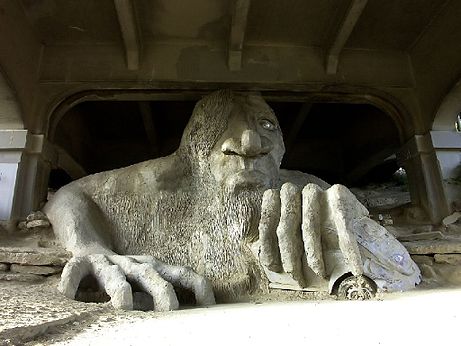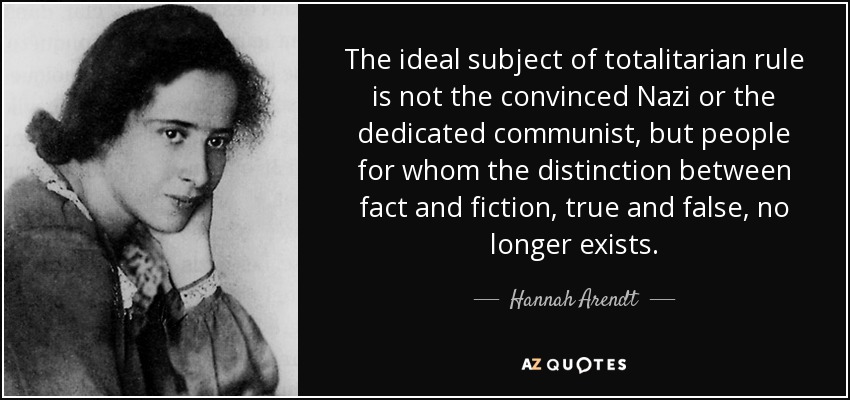Trolls have been a part of Magic: the Gathering since the beginning. Uthden Troll has the most punk rock flavor text ever. Sedge Troll, meanwhile, is hiding in a cave, writing bitter screeds about how Kird Ape stole his brand. Thrun, the Last Troll, has proven to be merely the last troll on Mirrodin—Harvester Troll appearing most recently in Oath of the Gatewatch. Golgari Grave-Troll has been in and out of prison of late. And then there’s Varolz, the Scar-Striped, who years ago tried to convince me that Death’s Shadow was a good card in Modern. What a troll!
Of course, trolls have a much longer history in fantasy literature. Magic: the Gathering has troll creatures—why wouldn’t it? The original conception of the troll, from Norse mythology, was a sort of unpleasant semi-human that lived in isolated mountain regions. They were best avoided. It’s not a long leap from there to modern-day malcontents who stir up rancor on the internet. Or a stone monster that lives under the Aurora bridge in Seattle and eats Volkswagens.

The modern concept of “trolling” refers to people who make insincere arguments to incite others to respond emotionally. This arises out of internet anonymity—anyone can pop into comment thread or Facebook wall and throw out some inflammatory words—but using language to bait an emotional response is as old as the Scandivanian source material. Like so many mythical constructs, the troll embodies deep-seated human traits that translate across generations and even millennia.
Do we have trolls in the Magic: the Gathering community? The easy answer is yes. We have reported recent news that Travis Woo was banned from competition for a year for creating the “Magic for Bad” Facebook group, where he led and encouraged members to write all sorts of vile, racist, misogynist dreck. We’ve also reported that Wizards of the Coast has banned Jeremy Hambly for life from the game and its platforms because of his rampant and intentional harassment, most notably of women. Both of these men exhibit patterns of behavior consistent with alt-right “troll” behavior, and both have sought to earn money for their bigotry through social media platforms. And the discipline handed down by Wizards of the Coast has been met with redoubled efforts to harass and silence those who speak out against these evil men.
That answer is too easy, though. The alt-right aren’t really trolls. A troll in our definition is someone who says things they don’t believe for the purpose of inflaming the emotions of others. Travis Woo wants you to think he doesn’t truly believe that Adolf Hitler wasn’t such a bad guy. “Some people say” is a rhetorical device used by gossip-mongers, propagandists, and apparently now U.S. presidents. They seek to avoid responsibility for the impact of their words—and this looks a lot like trolling. But they are posing as trolls to be more sympathetic, because somehow a half-human social outcast who says things calculated to hurt others is a better image than their true selves.

These “trolls” want to tear down meaning, to obliterate the concept of sincerity. They don’t want anyone’s words to be trustworthy. They do this because that is the world in which their vile hatred and aggressive ignorance can be accepted. Hannah Arendt, the brilliant political philosopher and author of The Origins of Totalitarianism, expressed this concept well.
So that was the easy answer to the “does the Magic community have trolls” question? Is there a hard answer? Do we have people who say things they know aren’t true, for the purpose of eliciting an emotional response from others? Like, say, to get laughs?
Cheon Power Rankings: June 10 Update #CheonPowerRankings #KingKyle @ThaGuyOnTheLeft @HAUMPH @NumotTheNummy pic.twitter.com/f15n5ZXO08
— Mishra’s Photoshop (@MishrasFotoshop) June 10, 2015
For those who are unaware, Magic Hall of Famer Luis Scott-Vargas—there are those who call him LSV—is great friends with current Wizards of the Coast employee (and former roommate/testing partner/punching bag) Paul Cheon. As such, Luis is well known for making good-natured jokes at Paul’s expense. LSV somehow made Paul into a hashtag and a Twitch chat meme. Here’s an example, from Cheon’s top eight performance at Grand Prix Denver 2015:
#paul #paul #paul #paul #paul #paul #paul #paul #paul #paul #paul #paul #paul #paul #paul #paul #paul #paul #paul #paul #GPDEN @HAUMPH
— Luis Scott-Vargas (@lsv) January 4, 2015
The two have been united in the commentary booth a few times during Pro Tour broadcasts, putting their playful banter on full display. Paul Cheon gets lauded for his unswerving ability to play the “straight man” in the comedy duo, which essentially means laughing at the ridiculous comic edifice LSV has erected out of trolling his good friend.
I suspect this is all in good fun. We are certainly told that it is. And the eager embrace of the “troll” label in this context is far more pervasive within the Magic community that the dynamic between LSV and Paul Cheon. I choose this example because both are beloved and well known. But I can’t help feeling like maybe it’s not really good fun, or that we shouldn’t view it that way even if it is. The year 2017 has changed the context with which we view our world. It has made a lot of previously-enjoyable activities feel a little bit dirty. Or a lot dirty. And that leads me to think that the “troll” persona is not a good one.
The worst, most toxic members of the Magic: the Gathering community embrace the label “troll” as a shield. It helps them upgrade their image. Maybe the rest of us should leave that label behind.
I realize I’m on the vanguard of abandoning words that have been appropriated for evil—after all, I resolved to never use the word “trump” in its gaming sense during last year’s U.S. election season. (Good thing I don’t play bridge!) I don’t want to police language, or ideas, or people’s concepts of friendship. But there’s one more thing I’ve learned this year: silence causes problems to linger and metastasize. Trolling in Magic is a problem. Let’s talk about it, for real.
Carrie O’Hara is Editor-in-Chief of Hipsters of the Coast.

